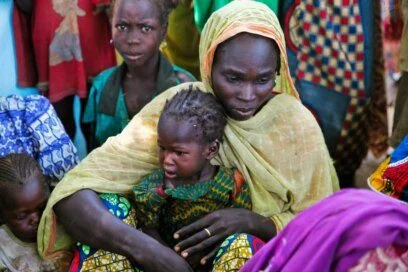The morning sun illuminated a village in Cameroon, where the Baka Indigenous community found solace under the forest canopy. Yet the tranquility was shattered by a passing truck, reminding them of their displacement and the uneasy life they now lead along roadways.
For generations, the Baka and the nearby Bagyieli people thrived in harmony with the forests of central Africa. However, their way of life is increasingly threatened by mining, logging, and the establishment of conservation areas, alongside government policies aiming to integrate these communities into broader society.
Rebecca Gwampiel, a 78-year-old Baka woman, reminisced about better times spent in the forest while preparing yam porridge in front of a traditional hut. Nearby, children played football with makeshift balls made of banana leaves.
Among them was 11-year-old Francis, who expressed his ambition to become a nurse to help his grandmother when she is unwell. However, for many Baka children, aspirations like Francis’s remain unfulfilled due to the lack of birth certificates. This absence poses a significant hurdle, as many in the community have never seen the need for such documents, having lived mostly isolated from administrative systems.
Francis’s father, Bertrand Akomi, 61, shared his frustration, explaining how he was denied a job at a lumber company because he lacked a birth certificate. This issue affects over 120,000 individuals in the Baka and Bagyieli communities, preventing them from obtaining national identity documents and enjoying the full rights of citizenship.
Banmi Emmanuel Dingha, chairman of the Foreign Affairs Committee in Cameroon’s National Assembly, emphasized the importance of birth registration for accessing education, healthcare, and job opportunities. There is hope for progress; recently, Dingha and other parliament members passed a bill that could help Cameroon join two United Nations conventions aimed at recognizing stateless individuals.
This legislative move is part of a broader commitment by African nations to tackle statelessness and affirm the right to nationality, which affects over 1.3 billion people on the continent. The Baka people, traditionally hunters and gatherers, often traverse lightly guarded borders in search of resources, and their presence extends beyond Cameroon into neighboring countries like Congo, the Central African Republic, Gabon, and Equatorial Guinea.
In the southern Campo region, where the Bagyieli reside, Henri Lema returned from a hunt, expressing his frustrations over the lack of identification documents. He faced harassment from paramilitary forces whenever he traveled to the district headquarters, leading to costly bribes for transport.
Simplice Nguiamba, a senior government official, explained that efforts are being made to ensure the Bagyieli have access to nationality documents through awareness campaigns and advocacy.
Additionally, other Cameroonian groups face similar challenges related to statelessness due to ongoing conflicts, such as the separatist crisis in the English-speaking regions and the Boko Haram insurgency in the Far North, which have caused many to lose their essential identification documents.























